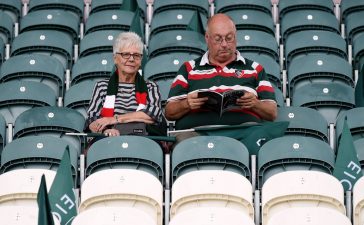Unlock the Editor’s Digest for free
Roula Khalaf, Editor of the FT, selects her favourite stories in this weekly newsletter.
The UK government’s decision to cut winter fuel payments will push up to 100,000 additional pensioners into poverty a year, a Whitehall impact assessment has shown.
Work and pensions secretary Liz Kendall disclosed internal estimates that the policy to means-test the allowance was likely to push an additional 50,000 pensioners into “relative poverty after housing costs” in the years 2024-25, 2025-26 and 2027-28.
The number could be as high as 100,000 for the years 2026-27, 2028-29 and 2029-30, according to a letter she wrote to the House of Commons work and pensions select committee, which was published on Tuesday.
The disclosure will increase pressure on Sir Keir Starmer to backtrack on the policy, and comes on the same day the leader of the Scottish Labour party promised to reinstate winter fuel payments if the party wins the Holyrood elections in May 2026.
In July, UK chancellor Rachel Reeves announced only people in receipt of pension credit or other benefits would receive the £300-a-year payments.
Shadow secretary for work and pensions Helen Whately said Labour “made a political choice to give inflation-busting pay rises to their union paymasters, and now 100,000 pensioners are going to be plunged into poverty”.
She added: “Now the true impact of their cut has been revealed it’s time for Labour to reverse it.”
Under plans put forward by Scottish Labour leader Anas Sarwar, all pensioners would be eligible for some payments to help them with winter fuel costs, although these would be tapered so that the wealthiest receive less.

Sarwar told the BBC his proposals covering Scotland would “deliver a fairer system that guarantees everyone who needs support gets it”.
He suggested the system could be modelled along the lines of child benefit, under which higher earners get lower payments.
He also criticised the governing Scottish National party for failing to take advantage of the fact that winter fuel payments are a devolved benefit, and had instead “decided to hand the power back to the DWP” in Westminster.
The change is designed to neutralise SNP attacks on Labour ahead of the elections to Holyrood.
But it creates a political challenge for Starmer’s UK government which is under pressure from charities, opposition parties and some Labour MPs to change tack.
One Labour figure said: “There was clearly a different way Reeves could have cut the payments and she may face questions about why they took the approach they did.”
Reeves presented the policy change — saving about £1.5bn a year in government spending — as an attempt to plug the fiscal “black hole” left by the previous Tory government.
The decision means about 10mn people who received the support will not get it this winter. The charity Age UK has estimated about 2.5mn of these are in serious financial need.
Sarwar declined to say whether the UK government should backtrack on the move, although he said his proposals would constitute a “Scottish solution” to the problem of too few people receiving the support.
Jon Trickett, the Labour MP for Normanton and Hemsworth in Yorkshire, has been a vocal critic of Starmer’s policy. He wrote on X that Sarwar’s decision was an “important announcement”, adding the “[UK] government should now correct its mistake and instate protective benefits to all who struggle”.
Maggie Chapman, of the Scottish Greens, called on both governments at Holyrood and Westminster “to take action now, rather than using the lives of vulnerable groups as a bargaining chip for future leadership bids”.












